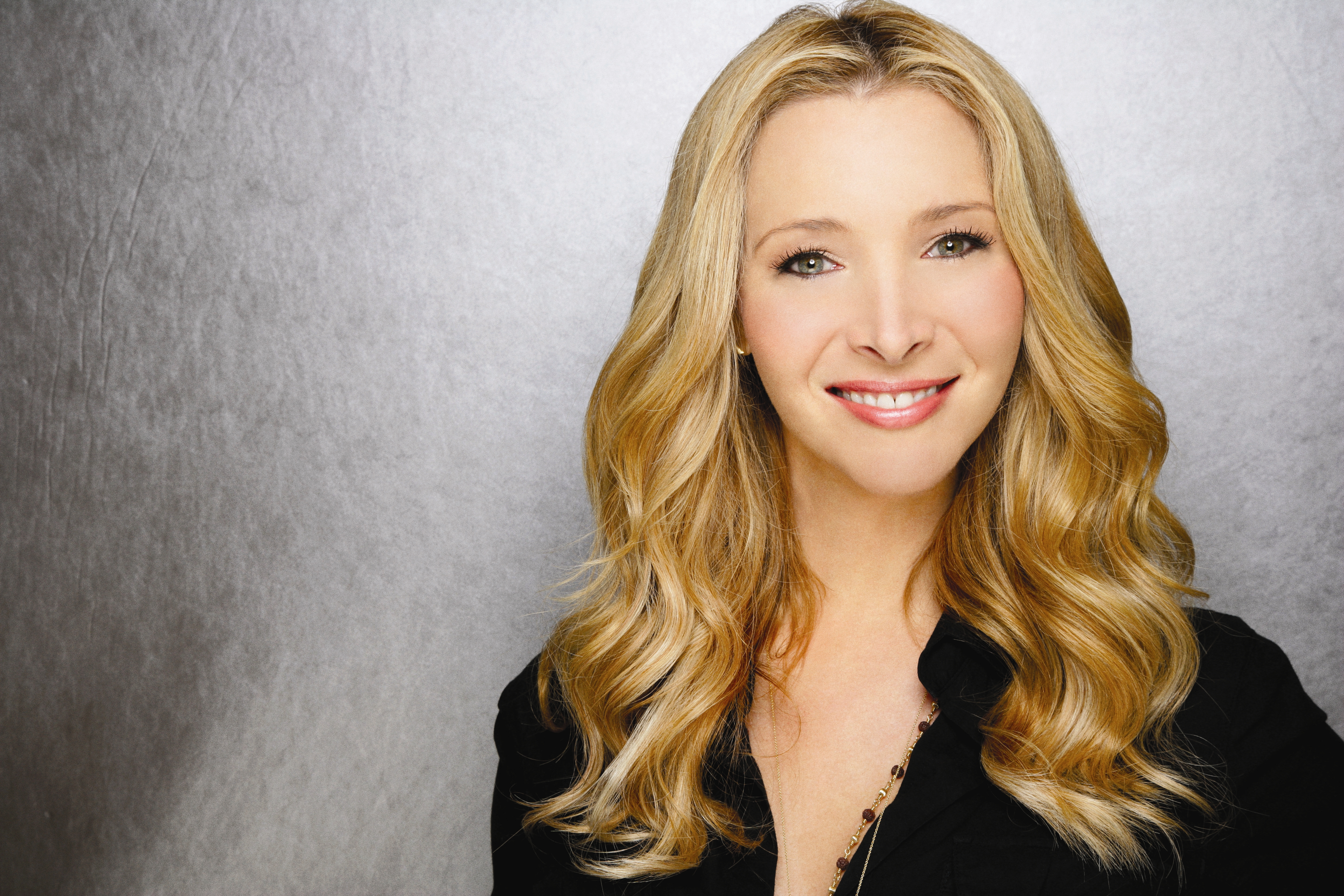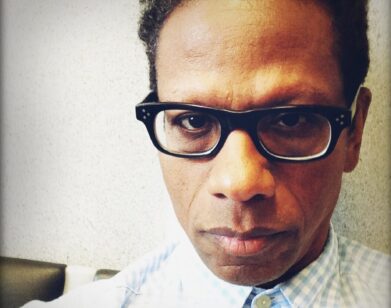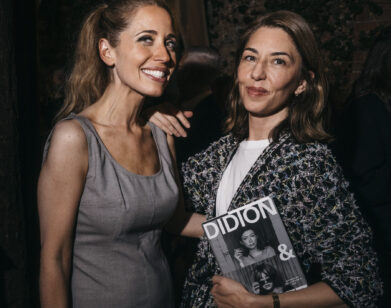Lisa Kudrow’s Post-‘Comeback’ Comeback

LISA KUDROW. PHOTO COURTESY OF GILLES TOUCAS
No list of TV series canceled before their time would be complete without mention of The Comeback, which premiered on HBO in June 2005 and died quietly three months later. The show, which was created by Emmy-winning Friends star Lisa Kudrow and Sex and the City executive producer Michael Patrick King, followed the misadventures of Valerie Cherish (Kudrow), an aging sitcom actress who attempts to jump-start her career by filming a humiliating, Anna Nicole-style reality show. After its cancellation, Kudrow took something of a break from the small screen—though between guest spots on shows like American Dad and Cougar Town and the Friends reruns that are guaranteed to be playing somewhere at any given moment, she’s never really been dificult to find while channel-surfing.
But as of last week, Kudrow is back. Her latest venture, Showtime’s Web Therapy, isn’t entirely new; it’s a half-hour comedy based on a web series Kudrow created with Dan Bucatinsky and Don Roos for Lexus’s L Studio. In it, Kudrow plays caustic therapist Fiona Wallace, a self-absorbed nightmare who counsels patients through three-minute sessions on iChat. Those patients tend to be played by big-name guest stars—Jane Lynch, Julia Louis-Dreyfus, Rashida Jones, and Meryl Streep have all taken a seat on Fiona’s virtual couch. We chatted with Kudrow about returning to TV, despicable reality stars, and how The Comeback might have survived.
HILLARY BUSIS: Will you be watching the show tonight?
LISA KUDROW: I think so. I think I’m live-tweeting.
BUSIS: Oh really? Are you going to be in character?
KUDROW: No, because she doesn’t know there’s a show. I take it very seriously.
BUSIS: You would have to figure that Fiona would be on Twitter, and Facebook—
KUDROW: She is. I only tweet as her, usually. As Dr. Fiona Wallace. And she doesn’t understand completely how it works, so she just keeps writing and then she gets cut off. And then she’ll just continue.
BUSIS: Oh, I’ll have to check that out. So first of all, I was wondering how TV has changed since your last series, The Comeback, went off the air. What was it like to return after six years?
KUDROW: Well, I feel like we snuck in through the back door, almost [like] being a recurring character that finally becomes a regular. So that was easy. Painless, sort of. There was no development process, although I’m sure Showtime would be easy to work with there. They were just buying readymades.
BUSIS: What was the process like, changing a readymade web series into a full-fledged half-hour show?
KUDROW: We went back and looked at the first two web seasons, which is what they bought. And we could see that there are definite arcs and narrative—because we couldn’t help ourselves—that it’s easy to miss. We thought we’d put them together and try, if we can, to space out one client over a couple episodes so you can start and finish different stories over the course of the season. And just get to know her husband and her mother and find out why she’s as horrible as she is. Because she’s really awful. We have to know why as soon as we can.
BUSIS: She’s a bit like a less likable version of Valerie Cherish.
KUDROW: To me, there’s a huge difference, because Valerie’s a decent person—she’s just misguided. Fiona is just—she’s not decent. She’s self-serving, and she doesn’t care who gets in her way.
BUSIS: What’s it like to go from playing more likable characters, like Phoebe on Friends, to playing somebody who’s so irredeemable? Was that difficult for you?
KUDROW: No. That’s what’s too bad. It wasn’t. But I have to say, that’s what’s funny to me. Because I think we see those kinds of people everywhere, for better or for worse—mostly for worse. That’s who we’re used to. If you watch reality shows, like any of the [Real] Housewives or Jersey Shore, the only way you get to stay on and people know who you are is the more despicable you behave.
BUSIS: It seems like Fiona would be a natural on a reality show.
KUDROW: Yeah. I think she would. I think she could hold her own with any of the Housewives.
BUSIS: Or a Celebrity Rehab thing.
KUDROW: Yeah. But she doesn’t do drugs.
BUSIS: Oh, I meant that she could be the Dr. Drew.
KUDROW: Oh, yeah! Could you imagine? “Well, just stop taking them.” [laughs] It would be really short. “If you die, you die. It’s nothing to me.”
BUSIS: So were all the scenes you added to flesh out the show improvised?
KUDROW: Yeah. They function as webisodes themselves. They actually were done for a mobile platform that went out of business like, the minute we delivered them. And they’re like, “Thank you. We’ll fulfill our obligation, but we’re going to go out of business.” All right, well—brand-new stuff for Showtime, I guess.
BUSIS: Do you enjoy improvising more than doing scripted comedy?
KUDROW: Well, it’s very fun to improvise. And the flip side is, it’s nice to have the words just written for you. In a way, you still have to do the same kind of work—it’s both listening and responding. And whether it’s scripted or improvised, you still have to maintain your point of view and have a reaction to what the other person is saying. I know it sounds stupid, but it doesn’t feel that different to me. Because I think whenever I have been doing my best scripted work, it felt improvised. It felt spontaneous.
BUSIS: Something I’ve noticed about the show is that so many of your guest stars are great female comedians—Julia Louis-Dreyfus, and Courteney Cox, and Jane Lynch…
KUDROW: And Lily Tomlin.
BUSIS: And Lily Tomlin. So do you feel like you want Web Therapy to be a platform for female comedians?
KUDROW: Oh, I didn’t think of it that way. That actually didn’t occur to us. We come up with these stories, and we see that there are some people interested in doing it. For that first season, Jane Lynch was one of the first people we called. That was before Glee came on. And she was game, and she’s obviously hilarious. But that wasn’t our intention, to platform women being funny. You know, I would like to get more guys.
BUSIS: Well, you still have Matt LeBlanc, and David Schwimmer, and Matthew Perry.
KUDROW: That’s right, that’s right.
BUSIS: Have you thought about roles that your other former Friends costars could play on the show?
KUDROW: Yeah.
BUSIS: Can you say anything more about them?
KUDROW: No. [laughs]
BUSIS: Well, it was worth trying. So going back to The Comeback—I’m sure when you talk about Web Therapy, a lot of people also ask you about The Comeback because they seem to follow naturally from one another.
KUDROW: Yeah? I guess they do.
BUSIS: Do you think they do?
KUDROW: Well, only in that I co-created both of them. And they both comment on what’s happening right now—self-serving women and how they think they can use media as a tool. And I guess my position with all of that, whether it’s a reality show or the Internet—it’s bigger than that. These are big monsters, networks and stuff like that. You can’t dominate them. Not really. I mean, even Charlie Sheen got fired.
BUSIS: The Comeback seemed so ahead of its time. Do you think if it had premiered a little bit later, it might have gone on past the first season?
KUDROW: If they had left it on, it would have been fine. Because I think in a couple of years, TV caught up to it. When we sold that show, Amazing Race was only into like, its second season, and there were no Real Housewives or any of that stuff. And only very young people were watching—I can’t remember what that MTV show was called.
BUSIS: The Real World?
KUDROW: Yeah! Sorry. God. But even that wasn’t so much about like, “Everyone be as despicable as you possibly can be.” So yeah, it definitely was ahead of its time. But out here in Hollywood, we all could see it was taking over. You know, scripted television was just not being ordered. But I think it took a little longer to get the rest of the world to see that. But Michael [Patrick King, Kudrow’s Comeback co-creator] even said at one point, “Wait a minute. This might be too far ahead of the curve.”
BUSIS: It’s funny—your show launched a couple of months after The Office started on NBC. Both of them are shot in a mockumentary style and feature the same kind of humor that makes you cringe. Have you thought at all about why one got to stick around and the other didn’t?
KUDROW: Yeah, they’re definitely similar. But I think that’s what people were fascinated with. I guess Ricky Gervais [was] too—that anyone’s fair game for entertainment, there’s no such thing as privacy. You think you’re in control, because that’s how it was just before that, where you [could] say, “Please don’t shoot this.” [laughs] That doesn’t exist anymore. There’s no such thing as “Please don’t shoot this.” And at HBO—that was the only place we thought it could be at the time. Because it certainly wouldn’t work on a network. And it is different than The Office; it’s a different tone. At the time, HBO seemed like the perfect fit because they had kept things on—Sex and the City, and other shows where [during] the first season everyone was wondering what this is. And they just left it on because they could. As they’d say, “Well, we had nothing else, so we just keep these things on.” And then people caught up. So I just always thought we were on at least a two-season time plan before it caught on. I never expected the first season to even do as well as it did, to be honest. Our ratings were still as good, if not better than—what was the show that had premiered the year before? Like, Entourage, or something. Except for whatever reason, it was like, “Yeah, we’re not going to keep it on.”
BUSIS: There’s been a lot of talk about making shows that were canceled too soon into movies. Do you think that could happen with The Comeback?
KUDROW: Maybe.
BUSIS: Would you be interested in something like that?
KUDROW: Yeah, maybe. We’ve talked about it, Michael and I. We’ll see. We don’t own it, so it’s not up to us.
BUSIS: Would you do another web series after Web Therapy?
KUDROW: If I had an idea, I would. And if the idea wasn’t something TV would be comfortable with.
BUSIS: What sorts of things do you think work better on the web?
KUDROW: I—This is where I’m going to sound like a big idiot. I don’t know. I don’t actually watch web series so much. But I think anything goes. Because in five minutes, all of our fifty-inch flat screens are going to be hooked up to the Internet, so you won’t necessarily know where the content originated from. You’re just going to look for the title, because you heard it was good, and then record it to watch it whenever you want.
WEB THERAPY AIRS TUESDAYS AT 11 PM ON SHOWTIME.






